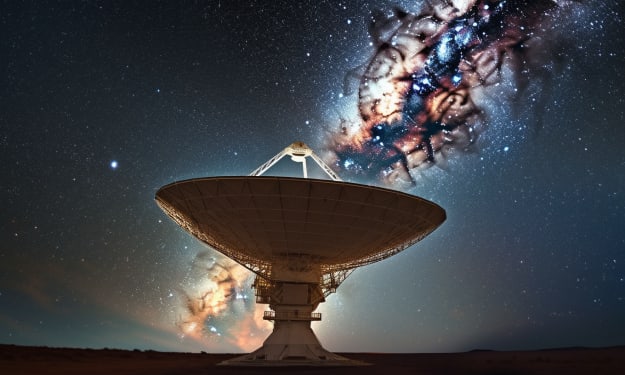
Introduction
Venus, our neighboring planet, has long fascinated scientists and space enthusiasts alike. Despite its harsh conditions, including a thick atmosphere and scorching temperatures, Venus holds valuable secrets that can deepen our understanding of planetary formation, climate change, and the potential for habitable environments beyond Earth. In recent years, interest in exploring Venus has surged, with several proposed missions aiming to unravel the mysteries of this enigmatic planet. This article delves into the significance of a mission to Venus, the insights gained from past missions, and the potential for future discoveries.
Understanding Venus: The "Twin" of Earth
Venus is often referred to as Earth's twin due to its similar size and composition. However, the stark differences in their environments make Venus an intriguing subject of study. While Earth thrives with life, Venus is a hostile world with extreme temperatures exceeding 900 degrees Fahrenheit (475 degrees Celsius) and an atmosphere primarily composed of carbon dioxide. Investigating the factors that led to such divergent paths for Earth and Venus provides valuable insights into the delicate balance that sustains habitability on our planet.
Unraveling Venus' Runaway Greenhouse Effect
Venus' extreme temperatures are attributed to its runaway greenhouse effect, making it the hottest planet in our solar system. The mission to Venus aims to understand the causes and mechanisms behind this phenomenon. By studying the composition and dynamics of Venus' thick atmosphere, scientists hope to gain crucial insights into the greenhouse effect and its potential implications for Earth's climate change. Understanding the factors that pushed Venus into a state of extreme greenhouse warming can inform our efforts to mitigate and manage global climate change on our own planet.
Venus' Volcanic Activity and Tectonic Features
Venus exhibits a remarkable geological landscape, marked by vast volcanic plains and towering volcanoes. Studying Venus' volcanic activity provides valuable insights into the planet's internal dynamics and its history of geological processes. By mapping and analyzing Venus' surface features, scientists can gain a better understanding of the planet's volcanic activity, tectonic plate movements, and the potential existence of active volcanoes. These findings contribute to our knowledge of planetary geology and shed light on the geological processes that shaped Venus and other rocky planets in our solar system.
Venus' Atmosphere and the Possibility of Life
Despite its inhospitable surface conditions, Venus' atmosphere holds tantalizing clues about the potential for life. The discovery of phosphine gas, a potential biosignature, in Venus' atmosphere has sparked interest and debate among scientists. A mission to Venus can help unravel the mystery of phosphine and determine its origin. Whether it points to the presence of microbial life or unknown chemical processes, studying Venus' atmosphere can enhance our understanding of the conditions necessary for life and inform future searches for habitable environments on other planets.
The Potential for Future Human Exploration
Exploring Venus also lays the groundwork for future human exploration beyond Earth. The extreme conditions on Venus pose significant challenges, including the high temperatures and corrosive atmosphere. Investigating ways to mitigate and overcome these obstacles is crucial for planning potential crewed missions to other hostile environments, such as Mars. Lessons learned from Venus missions can inform the development of technologies, spacecraft designs, and life support systems that can withstand and operate in extreme conditions, advancing our capabilities for future human exploration of other planets.
Proposed Missions to Venus
The renewed interest in Venus has spurred several proposed missions that aim to unveil its secrets. NASA's VERITAS (Venus Emissivity, Radio Science, InSAR, Topography, and Spectroscopy) mission, set to launch in the late 2020s, will map Venus' surface to understand its geologic history. Another NASA mission, DAVINCI+ (Deep Atmosphere Venus Investigation of Noble gases, Chemistry, and Imaging+), will study Venus' atmosphere to gain insights into its history, composition, and potential for habitability.
Other proposed missions, such as the EnVision mission by the European Space Agency (ESA) and various collaborative efforts, focus on mapping Venus' magnetic field and investigating its surface processes. These missions, combined with ongoing and future international collaborations, hold great promise for unraveling the mysteries of Venus and expanding our knowledge of planetary science.
Conclusion
A mission to Venus offers a wealth of scientific discoveries and insights into the inner workings of rocky planets, climate change, habitability, and future human exploration. By studying Venus' extreme environment, we can better understand the factors that shape our own planet and potentially uncover the building blocks of life in the cosmos. As interest in Venus continues to grow, the exploration of this enigmatic planet holds the potential to reshape our understanding of planetary science and our place in the universe.
About the Creator
Tatsuki
Space, Quantitative Finance, Crypto, Blockchain, Langurages, etc.
Personal Blog (Japanese): https://www.jinsei-100nenn.com/
AI Art Project: Space Cat AI (on Instagram)
Follow me:






Comments
There are no comments for this story
Be the first to respond and start the conversation.